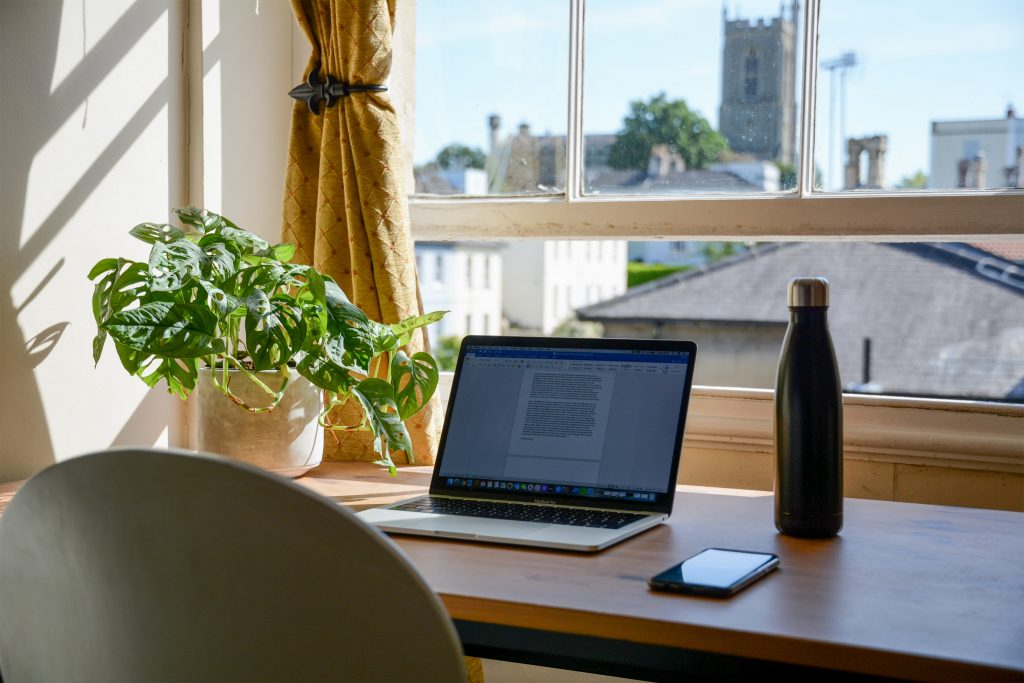
Working from home can seem like the dream at times. And, since the pandemic of 2020/21, ever more people are fulfilling that dream.
However, it is one thing to work remotely, but how about running a fully-fledged business from the comfort of your own home?
It may sound as simple as plugging a laptop in and working away, but the reality is that there are requirements to be met.
Indeed, there are strict laws and guidelines regarding what constitutes running a business from home and the required permits, the Borough of Bromley will have its own guidelines to follow.
Here, we guide you through what running a business from home looks like, the permissions needed to do so, and the relevant insurance and licenses required to live the dream.
What Constitutes Running a Business from Home?
According to the UK government website, being self-employed and running a business means taking responsibility for a company’s success or failure and not being paid through PAYE. Self-employed workers also don’t have the same employment rights and responsibilities as employees.
Furthermore, running a business constitutes having more than one customer simultaneously, making decisions over how, when, and where you work, hiring staff to help, and completing unsatisfactory work in your own time.
Crucially, the defining factor is selling goods or services to make a profit. So if you do one or all of the items on this list, the chances are that you’re self-employed.
In addition, if these tasks and actions are carried out at your home address, then you will be classed as running a business from home.
What Permissions Do I Need to Run My Business from Home?
While running a business from home is legal, you may need your mortgage provider, landlord, or council’s permission. The permissions required depend on whether you own your property or not and from where in the property you intend to work.
Below, we break down each type of property and the permissions required to work there.
Can You Run a Business from a Council House?
As your local authority owns your council house, you may need permission granted in writing to run your business from home. Always check with your housing association and local council before setting up shop.
You may need to fill out an application form to gain permission. Your tenancy agreement may also have specific details about what you can and can’t do from your home.
Some councils prohibit tenants from running businesses from home, or at least not without a fee towards the local authority. If permission the authorities grant permission, you may have to sign an agreement.
Furthermore, you must take into consideration the impact on your neighbours. For example, if you are likely to disturb other residents with delivery vans or machinery, your application may be turned down.
Another impact to consider is your council tax. Running a business from home can impact council tax rates, so take advice from a business adviser or local authority before launching.
Can You Run a Business from a Rented House?
Similarly to a council house, you will need to check your tenancy agreement before carrying out any business-related activities. In addition, you’ll require written permission from your landlord to run your business from a rented house.
Although your landlord can’t unreasonably prevent or delay granting permission, they can refuse if they believe the let for the proposed business should be commercial instead of residential.
Furthermore, they can also refuse if they feel that your business will have a negative impact on the property or disturb your neighbours.

Can You Run a Business from an Owned Home?
Some properties have legal restrictions attached to them, known as restrictive covenants. Restrictive covenants prevent properties from being used in particular ways, such as for commercial uses.
The Land Registry will have all the information about your property, including Restrictive Covenants. Check here before going ahead with any work on your new venture.
However, even if there are no Restrictive Covenants on your property, you still have to be mindful of your neighbours. As with rented or council properties, if your business is causing a nuisance or harming other properties, you could end up in court or having your business shut down.
If you don’t own your property outright and have a mortgage, it’s crucial that you check with your mortgage provider before going ahead with your business plans.
It’s quite common for mortgage agreements to prevent homes from being turned into businesses. Indeed, you may need permission from your lender. The consent is imperative as you could have to repay your mortgage in full if you breach your agreement.
Finally, if your business involves making material changes to your property, you may need to consider planning permission.
The type of business you run may also require a licence from your local authority and could impact your council tax. Always check before going ahead.
Running a Business from Home and Insurance
Another factor to consider when setting up a business from home is insurance. Your home insurance may not cover you completely if you work from home.
Home insurance may not cover stock, computers, customers visiting your premises, or even employees if you’ve elected to hire some outside help.
Contact your existing insurance provider for advice and to take out additional insurance to ensure you’re covered.
Business Rates When Working from Home
You may have to pay business rates on the part of your home you intend to work from. Business rates are charged on most non-domestic properties, but they can still apply to businesses that operate from home.
This will depend on whether the Valuation Office Agency has given a rateable value to a part of your property. If they have, you’ll need to pay business rates.
You can check with your local council about business rates or the government website for running a business from home.
Small Business Licenses Working from Home
Some businesses require government licenses or permits that allow them to trade, which still apply even if working from home.
Businesses such as childcare, food production, and financial services are all regulated even though they can be done from home.
Check with your local authority before trading, as the penalties for operating without a permit could mean the end of your business.
Small Business Tax Relief When Working from Home
To help small businesses get off the ground, the government offer tax relief for companies operating from home.
You can claim part of your household bills back from the government, as well as being able to claim £4 er week for using y our home for work.
You will need to register for a Self-Assessment Tax Return if self-employed, however.
So, there is definitely scope to run your business from your own home. However, whilst it sounds like the dream, make sure you run the necessary checks before opening your doors to the public.
As we’ve covered, there are many permutations for running a business from home, and you could face severe penalties if you don’t follow the law.
If you do get permission, the sky is the limit. After all, working from home is the new normal.



